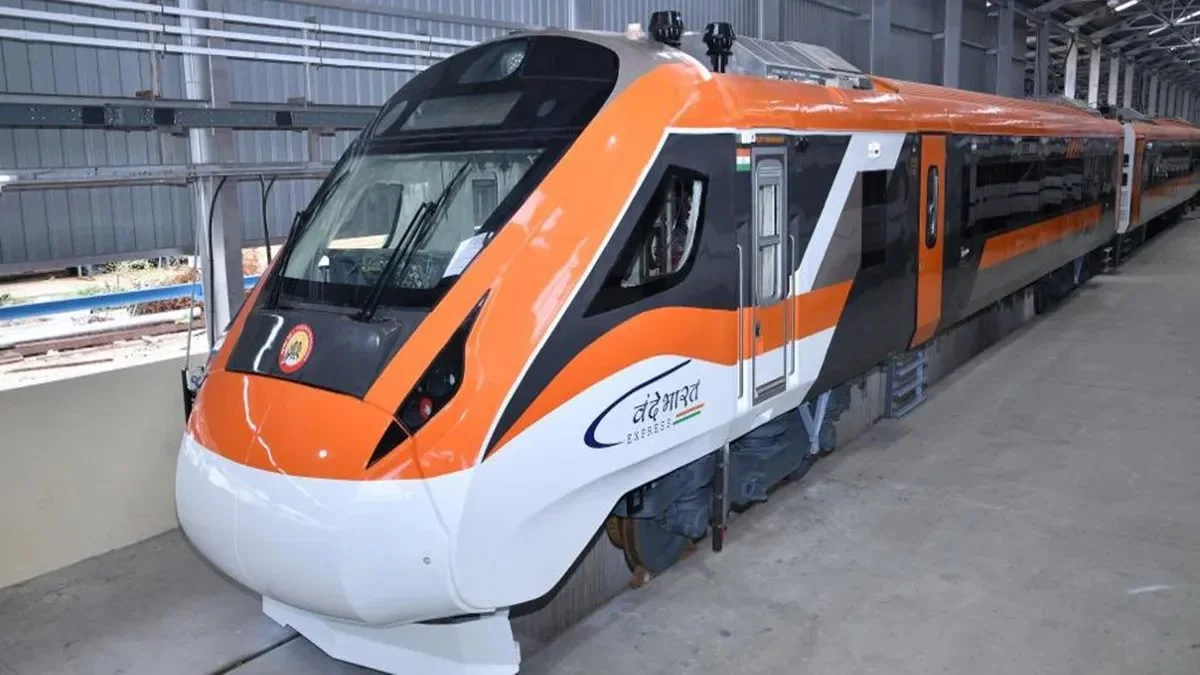Hyderabad is at the forefront of a potential paradigm shift in long-distance rail travel with significant buzz surrounding the imminent rollout of Vande Bharat Sleeper services on the crucial Secunderabad-New Delhi corridor.
While formal confirmation from South Central Railway (SCR) is still awaited, social media is abuzz with speculation regarding this high-speed, long-distance sleeper train, which promises to redefine overnight journeys between the two major metropolitan hubs. This anticipated advancement aligns seamlessly with the national vision of fostering zero-net carbon, eco-friendly, and more equitable cities by promoting efficient and comfortable rail travel as a sustainable alternative to air and road transport.
The Vande Bharat Express trains have already garnered substantial patronage in their day-service configurations, demonstrating a clear public appetite for modern, faster rail options. The introduction of a sleeper variant for extended distances is highly anticipated by commuters, particularly those who regularly traverse the approximately 1,700-kilometre stretch between Secunderabad and the national capital. This new service is expected to significantly reduce journey times, offering a compelling alternative to existing popular services like the Rajdhani Express and Duronto Express, which currently take between 22 to 24 hours to cover the same distance. The Vande Bharat Sleeper aims to trim this travel duration by a notable three to four hours, a considerable saving of time for business travellers, students, and individuals with personal commitments.
The launch of the Vande Bharat Sleeper on this route would be especially beneficial for the substantial number of Hyderabad-based passengers who frequently travel to Delhi for work, education, or family reasons. Currently, these journeys consume an entire day, impacting productivity and personal schedules. The proposed sleeper variant would transform this arduous daytime travel into a comfortable overnight experience, allowing passengers to arrive refreshed and ready for their engagements, thereby enhancing both personal well-being and economic efficiency. Railway enthusiasts, long awaiting such an offering, view this as a crucial step in modernising India’s long-distance rail network.
Unlike the existing Vande Bharat Express trains, which are primarily designed for daytime travel with reclining seats, the sleeper version will feature well-appointed berths, offering a superior level of comfort for overnight journeys. Beyond comfortable sleeping arrangements, these trains are expected to incorporate modern interior aesthetics, improved suspension systems for a smoother ride, and upgraded safety mechanisms, ensuring passenger security and peace of mind. Furthermore, these trains are anticipated to be equipped with contemporary amenities such as Wi-Fi connectivity, USB charging ports at each berth, and automatic doors, enhancing the overall travel experience and bringing it closer to global standards of high-speed rail.
The broader implication of integrating Vande Bharat Sleeper trains into India’s rail network extends beyond mere convenience. Rail transport inherently boasts a significantly lower carbon footprint per passenger-kilometre compared to air travel or individual private vehicle use. By providing a faster, more comfortable, and reliable overnight option, the Vande Bharat Sleeper encourages a modal shift towards rail, directly contributing to the national and global efforts towards reducing carbon emissions from the transport sector. This supports the development of zero-net carbon cities and promotes sustainable mobility choices for citizens, fostering a greener future for India’s burgeoning urban centres. The continuous modernisation of railway infrastructure is paramount to India’s holistic development, connecting disparate regions efficiently and equitably, thus strengthening the social and economic fabric of the nation.
Also Read: Mumbai: 162 Trains Cancelled Over Weekend Due to Kandivli Block


